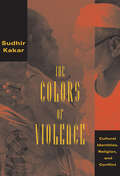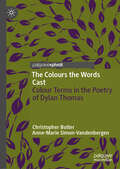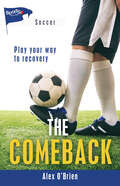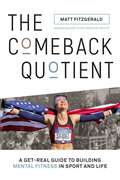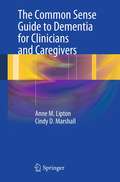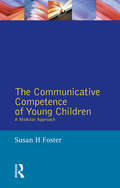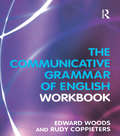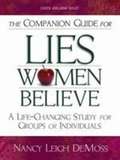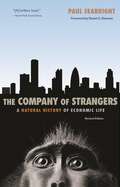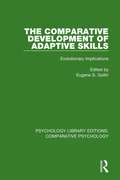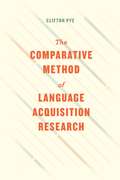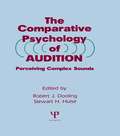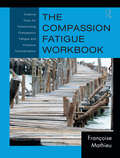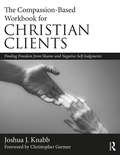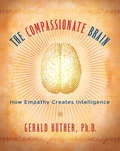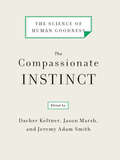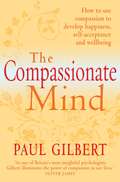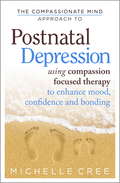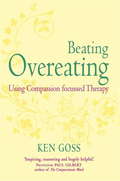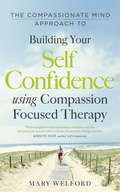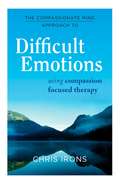- Table View
- List View
The Colors of Violence: Cultural Identities, Religion, and Conflict
by Sudhir KakarFor decades India has been intermittently tormented by brutal outbursts of religious violence, thrusting thousands of ordinary Hindus and Muslims into bloody conflict. In this provocative work, psychoanalyst Sudhir Kakar exposes the psychological roots of Hindu-Muslim violence and examines with grace and intensity the subjective experience of religious hatred in his native land. With honesty, insight, and unsparing self-reflection, Kakar confronts the profoundly enigmatic relations that link individual egos to cultural moralities and religious violence. His innovative psychological approach offers a framework for understanding the kind of ethnic-religious conflict that has so vexed social scientists in India and throughout the world. Through riveting case studies, Kakar explores cultural stereotypes, religious antagonisms, ethnocentric histories, and episodic violence to trace the development of both Hindu and Muslim psyches. He argues that in early childhood the social identity of every Indian is grounded in traditional religious identifications and communalism. Together these bring about deep-set psychological anxieties and animosities toward the other. For Hindus and Muslims alike, violence becomes morally acceptable when communally and religiously sanctioned. As the changing pressures of modernization and secularism in a multicultural society grate at this entrenched communalism, and as each group vies for power, ethnic-religious conflicts ignite. The Colors of Violence speaks with eloquence and urgency to anyone concerned with the postmodern clash of religious and cultural identities.
The Colours the Words Cast: Colour Terms in the Poetry of Dylan Thomas
by Christopher Butler Anne-Marie Simon-VandenbergenThis book examines the use of colour terms in the poetry of Dylan Thomas, adopting a primarily linguistic and stylistic - rather than literary - approach. Although critical studies of the poetry of Dylan Thomas abound, systematic and detailed linguistic studies of his poems are relatively rare. The authors&’ main aim is to investigate in detail the use of colour terms, and in particular to link this to the associations between colours and their connotative symbolic meanings, which form the basis for what have been called colour metaphors. They also provide a rich database of these associations which will be of use to researchers who may be interested in the use of colour terms in other texts, whether literary or non-literary. This book will be of interest primarily to academics and advanced students in the field of linguistic stylistics.
The Combat Trauma Healing Manual: Christ-centered Solutions for Combat Trauma
by Chris AdsitThis book offers spiritual solutions for your struggles with Posttraumatic Stress Disorder (PTSD), by combining the latest insights of the medical and psychiatric communities with the timeless principles of God's Word.
The Comeback (Lorimer Sports Stories)
by Alex O'BrienOn the surface, fourteen-year-old Chris is pretty average, playing hockey and having friends. But underneath it all, Chris is depressed. He quits his hockey team, but his doctor suggests that he should pick up another sport. Chris starts playing soccer, and the positive benefits of sport start to take effect. But former hockey teammate Trent is on the team, and his suspicions about Chris and his mental health threaten Chris's acceptance and recovery. When Chris and Trent are chosen to play in a summer tournament, Chris decides to keep his depression a secret. But will rumors and stigma about his condition make him backslide and turn his own team against him? Find out in this sensitive high/low middle grade title. Distributed in the U.S by Lerner Publishing Group.
The Comeback Quotient: A Get-Real Guide to Building Mental Fitness in Sport and Life
by Matt FitzgeraldA good comeback makes a great story. In The Comeback Quotient, sports journalist Matt Fitzgerald shares the stories of top athletic comebacks, to give you inspiration and tools for your own comeback in sport or life.Every sports fan loves a great comeback. Is there a special quality shared by top athletes who triumph over great challenges? And can anyone acquire it? In The Comeback Quotient, celebrated sportswriter Matt Fitzgerald supplies the answer to both questions. He identifies these mega-achievers of astounding athletic comebacks as &“ultrarealists,&” men and women who succeed where others fail by fully accepting, embracing, and addressing the reality of their situations. From ultrarunners like Rob Krar to triathletes like Mirinda Carfrae to rowers, skiers, cyclists, and runners all over the world, Fitzgerald highlights and speculates on just what makes these comebacks so compelling. As for whether anyone can stage his or her own great comeback, the answer is a resounding yes: Anyone can become an ultrarealist to some degree. In the tradition of his best-selling How Bad Do You Want It?, The Comeback Quotient combines gripping sports stories with mind-blowing science to deliver a book that will forever change how you perceive the challenges you face, giving you the inspiration and the tools to make the next great comeback you witness your own.
The Common Sense Guide to Dementia For Clinicians and Caregivers
by Anne M. Lipton Cindy D. MarshallThe Common Sense Guide to Dementia for Clinicians and Caregivers provides an easy-to-read, practical, and thoughtful approach to dementia care. Written by two specialists who have cared for thousands of patients with dementia and their families, this ground-breaking title unifies the perspectives of neurology and psychiatry to meet a variety of caregiver needs. It spotlights many real-world concerns not typically covered in standard textbooks, while simultaneously presenting a more detailed medical perspective than typical caregiver manuals. This handy title offers expert guidance for the clinical management of dementia and compassionate support of patients and families. Designed to enhance the physician-caregiver interaction and liberally illustrated with case examples, The Common Sense Guide espouses general principles of dementia care that apply across the stages and spectrum of this illness, including non-Alzheimer's types of dementia, in addition to Alzheimer's disease. Clinicians, family members, and other caregivers will find this volume useful from the moment that symptoms of dementia emerge. The authors place an emphasis on caring for the caregiver as well as the patient. Essential topics include how to find the right clinician, make the most of a doctor's visit, and avert a crisis - or manage one that can't be avoided. Sometimes difficult considerations, such as driving, financial management, legal matters, long-term placement, and end-of-life care, are faced head-on. Tried, true, and time-saving tips are explained in terms of what works - and what doesn't - with regard to clinical evaluation, medications, behavioral measures, and alternate therapies. Medical, nursing, and allied health care professionals will undoubtedly turn to this unique overview as a vital resource and mainstay of clinical dementia care, as well as a valuable recommendation for family caregivers.
The Communicative Competence of Young Children: A Modular Approach (Studies in Language and Linguistics)
by Susan H. Foster-CohenHow children first acquire language is one of the central issues in linguistics. This book draws on a wide range of research, including work in developmental psychology, anthropology and sociology, to explore the processes behind child language acquisition to the preschool period.
The Communicative Grammar of English Workbook
by Edward Dr. Woods Rudy CoppietersThe companion text to A Communicative Grammar of English (CGE), this workbook presents an opportunity for practising the points raised in the main grammar. The units follow the order of sections in Part One and Part Two of CGE; at the beginning of each sub-unit there is a brief explanation of a particular structure followed by a series of tasks, ranging from gap filling exercises to rewrite assignments and conversational passages in which the student is invited to participate.? With authentic material and a variety of different task types graded by difficulty, this is an indispensable resource for teachers and advanced students with a good grounding in the grammar of the language.
The Companion Guide for Lies Women Believe: Life-changing Study for Individuals and Groups
by Nancy Leigh DemossThe Companion Guide for Lies Women Believe is made up of ten sessions and is designed for individuals and small groups. Each chapter includes the following features: In a Nutshell--gives you an overview of the chapter to be studied from Lies Women Believe and reminds you of the lies discussed within that chapter. Exploring the Truth--offers a daily personal study for you to complete during the course of the week between your small group meetings. Each day's study includes a few pages to read from Lies Women Believe and then questions to answer under the subtitles "Realize," "Reflect," and "Respond." Walking Together in the Truth--provides questions to be discussed when your small group meets. This engaging workbook will make you and your friends think and wrestle with the Truth as you search the Bible for answers to tough issues. The Companion Guide for Lies Women Believe is ideal for small groups, Bible studies, and Sunday school classes.
The Company of Strangers: A Natural History of Economic Life - Revised Edition
by Paul SeabrightThe Company of Strangers shows us the remarkable strangeness, and fragility, of our everyday lives. This completely revised and updated edition includes a new chapter analyzing how the rise and fall of social trust explain the unsustainable boom in the global economy over the past decade and the financial crisis that succeeded it. Drawing on insights from biology, anthropology, history, psychology, and literature, Paul Seabright explores how our evolved ability of abstract reasoning has allowed institutions like money, markets, cities, and the banking system to provide the foundations of social trust that we need in our everyday lives. Even the simple acts of buying food and clothing depend on an astonishing web of interaction that spans the globe. How did humans develop the ability to trust total strangers with providing our most basic needs?
The Comparative Development of Adaptive Skills: Evolutionary Implications (Psychology Library Editions: Comparative Psychology)
by Eugene S. GollinOriginally published in 1985, the aim of this book was to examine the development of adaptive skills in a comparative context. Comparative explorations have evolutionary implications. Thus it is inevitable that the contributors to this volume, all of whom come to the study of development with a comparative perspective, manifest concern with the relationships between ontogeny and phylogeny. In this volume both field and laboratory approaches are presented. It is quite clear that the laboratory studies are increasingly informed by ecological considerations that derive from field excursions. It is also the case that laboratory findings are becoming an essential source in directing field inquiries. The problems explored are theoretically rich and methodically significant and the comparative scope of the contributions range widely among vertebrate species.
The Comparative Method of Language Acquisition Research
by Clifton PyeThe Mayan family of languages is ancient and unique. With their distinctive relational nouns, positionals, and complex grammatical voices, they are quite alien to English and have never been shown to be genetically related to other New World tongues. These qualities, Clifton Pye shows, afford a particular opportunity for linguistic insight. Both an overview of lessons Pye has gleaned from more than thirty years of studying how children learn Mayan languages as well as a strong case for a novel method of researching crosslinguistic language acquisition more broadly, this book demonstrates the value of a close, granular analysis of a small language lineage for untangling the complexities of first language acquisition. Pye here applies the comparative method to three Mayan languages—K’iche’, Mam, and Ch’ol—showing how differences in the use of verbs are connected to differences in the subject markers and pronouns used by children and adults. His holistic approach allows him to observe how small differences between the languages lead to significant differences in the structure of the children’s lexicon and grammar, and to learn why that is so. More than this, he expects that such careful scrutiny of related languages’ variable solutions to specific problems will yield new insights into how children acquire complex grammars. Studying such an array of related languages, he argues, is a necessary condition for understanding how any particular language is used; studying languages in isolation, comparing them only to one’s native tongue, is merely collecting linguistic curiosities.
The Comparative Psychology of Audition: Perceiving Complex Sounds
by Robert J. Dooling Stewart H. HulseUniting scientists who study music, child language, human psychoacoustics, and animal acoustical communication, this volume examines research on the perception of complex sounds. The contributors' papers focus on finding a common principle from the comparison of the processing of complex acoustic signals. This volume emphasizes the "comparative" and the "complex" in auditory perception. Topics covered range from communication systems in mice, birds, and primates to the perception and processing of language and music by humans.
The Compassion Fatigue Workbook: Creative Tools for Transforming Compassion Fatigue and Vicarious Traumatization (Psychosocial Stress Series)
by Françoise MathieuThe Compassion Fatigue Workbook is a lifeline for any helping professional facing the physical and emotional exhaustion that can shadow work in the helping professions. Since 2001 the activities in this Workbook have helped thousands of helpers in the fields of healthcare, community mental health, correctional services, education, and the military. In addition to a comprehensive description of compassion fatigue and vicarious traumatization, The Compassion Fatigue Workbook leads the reader through experiential activities designed to target specific areas in their personal and professional lives. It provides concrete strategies to help the reader develop a personalized plan for identifying and transforming compassion fatigue and vicarious traumatization. Topics covered include: understanding compassion fatigue and vicarious trauma symptom checklist targeting areas for strategic planning understanding warning signs assessing contributing factors evaluating self-care identifying triggers solutions: personal, professional and organizational strategies.
The Compassion-Based Workbook for Christian Clients: Finding Freedom from Shame and Negative Self-Judgments
by Joshua J. KnabbThe Compassion-Based Workbook for Christian Clients integrates contemporary research in clinical psychology on compassion-based approaches to shame with a Christian worldview, offering a wide variety of strategies for Christians to better understand and combat shame and negative self-judgments. Chapters lay out a four-step process to help clients let go of unhelpful thinking patterns that lead to shame, experience God’s compassion on a deeper level, and extend this compassion to themselves and others. Readers will find a wealth of Christian-sensitive experiential exercises, journaling assignments, biblical examples, and case examples throughout the workbook. Audio recordings for several guided meditations are also provided to help Christians practice the strategies offered in the workbook.
The Compassionate Brain: A Revolutionary Guide to Developing Your Intelligence to Its Full Potential
by Gerald HütherHere is the ultimate explanation of the brain for everyone who thinks: a guide to how the brain works, how our brains came to operate the way they do, and, most important, how to use your precious gray matter to its full capacity. The brain, according to current research, is not some kind of automatic machine that works independently of its user. In fact, the circuitry of the brain actually changes according to how one uses it. Our brains are continuously developing new capacities and refinements--or losing them, depending upon how we use them. Gerald Hüther takes us on a fascinating tour of the brain's development--from one-celled organisms to worms, moles, apes, and on to us humans--showing how we truly are what we think: our behavior directly affects our brain capacity. And the behavior that promotes the fullest development of the brain is behavior that balances emotion and intellect, dependence and autonomy, openness and focus, and ultimately expresses itself in such virtues as truthfulness, considerateness, sincerity, humility, and love. Hüther's user's-manual approach is humorous and engaging, with a minimum of technical language, yet the book's message is profound: the fundamental nature of our brains and nervous systems naturally leads to our continued growth in intelligence and humanity.
The Compassionate Instinct: The Science of Human Goodness
by Jason Marsh Dacher Keltner Jeremy Adam SmithLeading scientists and science writers reflect on the life-changing, perspective-changing, new science of human goodness. In these pages you will hear from Steven Pinker, who asks, "Why is there peace?"; Robert Sapolsky, who examines violence among primates; Paul Ekman, who talks with the Dalai Lama about global compassion; Daniel Goleman, who proposes "constructive anger"; and many others. Led by renowned psychologist Dacher Keltner, the Greater Good Science Center, based at the University of California in Berkeley, has been at the forefront of the positive psychology movement, making discoveries about how and why people do good. Four times a year the center publishes its findings with essays on forgiveness, moral inspiration, and everyday ethics in Greater Good magazine. The best of these writings are collected here for the first time. A collection of personal stories and empirical research, The Compassionate Instinct will make you think not only about what it means to be happy and fulfilled but also about what it means to lead an ethical and compassionate life.
The Compassionate Instinct: The Science of Human Goodness
by Jason Marsh Dacher Keltner Jeremy Adam SmithLeading scientists and science writers reflect on the life-changing, perspective-changing, new science of human goodness. In these pages you will hear from Steven Pinker, who asks, "Why is there peace?"; Robert Sapolsky, who examines violence among primates; Paul Ekman, who talks with the Dalai Lama about global compassion; Daniel Goleman, who proposes "constructive anger"; and many others. Led by renowned psychologist Dacher Keltner, the Greater Good Science Center, based at the University of California in Berkeley, has been at the forefront of the positive psychology movement, making discoveries about how and why people do good. Four times a year the center publishes its findings with essays on forgiveness, moral inspiration, and everyday ethics in Greater Good magazine. The best of these writings are collected here for the first time. A collection of personal stories and empirical research, The Compassionate Instinct will make you think not only about what it means to be happy and fulfilled but also about what it means to lead an ethical and compassionate life.
The Compassionate Mind
by Prof Paul Gilbert'Wise and perceptive. [It] teaches self-compassion and the consolations of kindness. I recommend it.' SALLY BRAMPTON, author of Shoot the Damn DogDEVELOP YOUR FEELINGS OF COMPASSION AND INCREASE YOUR SENSE OF WELL-BEING In societies that encourage us to compete with each other, compassion is often seen as a weakness. Striving to get ahead, self-criticism, fear, and hostility towards others seem to come more naturally to us.The Compassionate Mind explains the evolutionary and social reasons why our brains react so readily to threats - and reveals how our brains are also hardwired to respond to kindness and compassion.Research has found that developing kindness and compassion for ourselves and others builds our confidence, helps us create meaningful, caring relationships and promotes physical and mental health. Far from fostering emotional weakness, practical exercises focusing on developing compassion have been found to subdue our anger and increase our courage and resilience to depression and anxiety. 'As one of Britain's most insightful psychologists, Gilbert illuminates the power of compassion in our lives.' OLIVER JAMES, AUTHOR OF AFFLUENZA
The Compassionate Mind Approach To Postnatal Depression: Using Compassion Focused Therapy to Enhance Mood, Confidence and Bonding
by Michelle CreeIt is well-known that having a baby can be a time of joy but also one of anxiety and even depression for new mothers. Indeed it is very common for new mothers to experience a short period of distress following childbirth, often referred to as 'baby blues'. Usually this passes quite quickly, however for more than 1 in 10 women, this distressing experience can be more prolonged. This practical self-help book based on Compassion Focused Therapy will help women to recognise some of the symptoms and, where appropriate, to normalise them, thereby alleviating their distress. It will also guide mothers-to-be and new mothers through the maze of confusing feelings that can arise. Not only will this book cover the basic experiences and symptoms associated with anxiety and depression and childbirth, an evolutionary model of why this occurs, and an outline of the basic Compassionate Mind model, it will guide the reader through a series of exercises that they can use for themselves to develop their compassionate mind and work on their difficulties.
The Compassionate Mind Approach To Postnatal Depression: Using Compassion Focused Therapy to Enhance Mood, Confidence and Bonding (Compassion Focused Therapy)
by Michelle CreeIt is well-known that having a baby can be a time of joy but also one of anxiety and even depression for new mothers. Indeed it is very common for new mothers to experience a short period of distress following childbirth, often referred to as 'baby blues'. Usually this passes quite quickly, however for more than 1 in 10 women, this distressing experience can be more prolonged.This practical self-help book based on Compassion Focused Therapy will help women to recognise some of the symptoms and, where appropriate, to normalise them, thereby alleviating their distress. It will also guide mothers-to-be and new mothers through the maze of confusing feelings that can arise. Not only will this book cover the basic experiences and symptoms associated with anxiety and depression and childbirth, an evolutionary model of why this occurs, and an outline of the basic Compassionate Mind model, it will guide the reader through a series of exercises that they can use for themselves to develop their compassionate mind and work on their difficulties.
The Compassionate Mind Approach to Beating Overeating: Series editor, Paul Gilbert
by Kenneth GossThis self-help book explores the problems created by having ready access to high fat foods designed to taste good. Because we evolved in conditions of relative scarcity we have few natural food inhibitors and so most diet books try to encourage people to inhibit their eating by highly rule governed behaviours which have to be constantly worked at. However, this can lead to various forms of self-criticism which can undermine efforts at self-control. As a result our relationship with eating can be complex, multifaceted and problematic.Beating Overeating Using Compassion Focused Therapy uses Compassion Focused Therapy - a groundbreaking new therapeutic approach - to understand and work with our urges and passions for food. We can learn to enjoy and accept food and pay attention to our biological and emotional needs. This book is for people who have tried diets and found that they don't work and will enable the reader to have a healthier and happier relationship with food and their body.Topics covered: The relationship between our brains and food, the evolutionary background to finding, conserving and eating food How too much or too little food affects the brain, why diets don't work, factors affecting our eating behaviour (tastes, stress, comfort, etc) Body shape and culture Developing an inner compassion for one's relationship with food - recognising what we need and what is helpful
The Compassionate Mind Approach to Building Self-Confidence: Series editor, Paul Gilbert (Compassion Focused Therapy Ser.)
by Mary WelfordMany of us have a tendency to measure our self-worth by comparing ourselves to others. But when we fail to reach our own, families, communities or societies 'ideals' this often results in feelings of inadequacy, anxiety and low mood. We may become self-critical, experience shame and a sense of being different from others. Although an improvement in 'self-esteem' is what we may feel we want this is not necessarily what we need. This is because self-esteem is often associated with times when things are going well but can fail us when things do not go to plan. In contrast self-confidence, built from self-compassion, can help us when things are going well and make us more resilient when things are difficult.This book uses the ideas and practices of Compassion Focused Therapy to help build self-confidence. Attention is also paid to difficulties that often come hand in hand with lack of self-confidence such as anxiety, depression, substance use and anger.
The Compassionate Mind Approach to Building Self-Confidence: Series editor, Paul Gilbert (Compassion Focused Therapy)
by Dr Mary WelfordMany of us have a tendency to measure our self-worth by comparing ourselves to others. But when we fail to reach our own, families, communities or societies 'ideals' this often results in feelings of inadequacy, anxiety and low mood. We may become self-critical, experience shame and a sense of being different from others. Although an improvement in 'self-esteem' is what we may feel we want this is not necessarily what we need. This is because self-esteem is often associated with times when things are going well but can fail us when things do not go to plan. In contrast self-confidence, built from self-compassion, can help us when things are going well and make us more resilient when things are difficult.This book uses the ideas and practices of Compassion Focused Therapy to help build self-confidence. Attention is also paid to difficulties that often come hand in hand with lack of self-confidence such as anxiety, depression, substance use and anger.
The Compassionate Mind Approach to Difficult Emotions: Using Compassion Focused Therapy
by Chris IronsEmotions bring purpose, pleasure and meaning to our lives. However, for many people, they are synonymous with distress, pain and suffering. Anger and rage can wreck relationships and cause problems at work; anxiety can prevent us from socialising or engaging in things we would like to; sadness can feel overwhelming and never ending. These types of difficulties are often referred to as emotion regulation problems, and can prevent us from developing stable and happy relationships, communicating our needs, and flourishing.This practical self-help book based on Compassion Focused Therapy (CFT) will help you to take a new approach to managing difficult emotions. It outlines why we experience emotions, how they can be helpful but also how and why we can get in to struggles with them. It outlines the Compassionate Mind model, and guides you through a series of exercises that will help you to develop your compassion mind, and use this to develop more helpful emotion regulation strategies, and bring greater balance to your emotions.
